Experts say poor funding, economic hardship strangling education in Nigeria
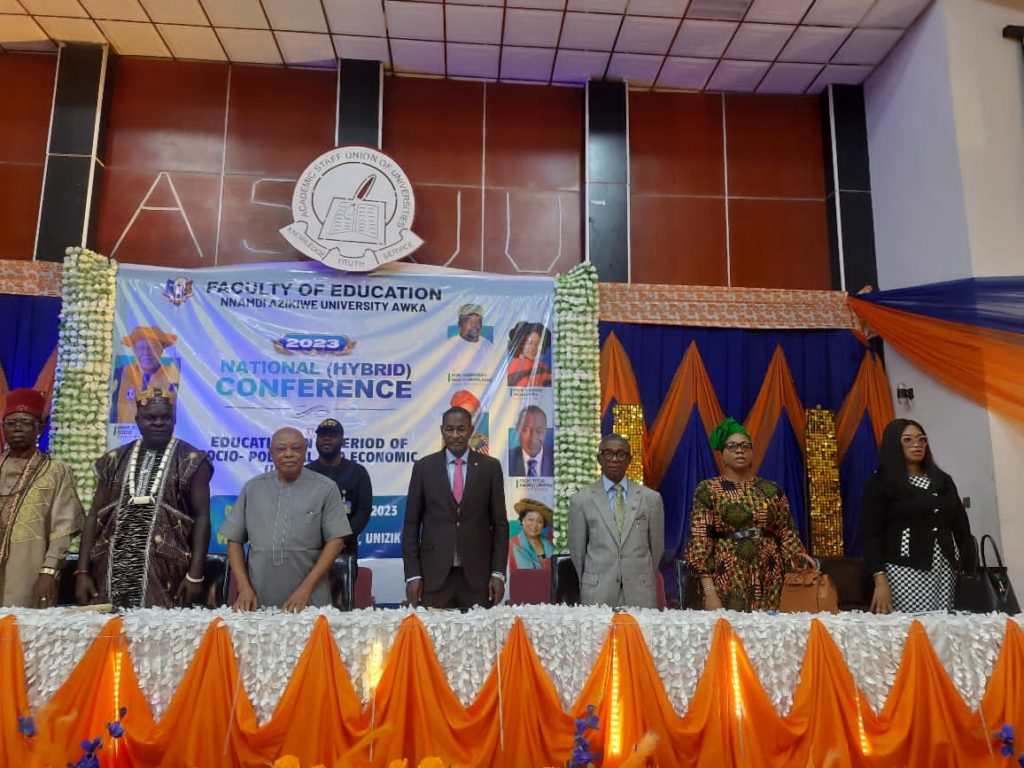
Lawrence Nwimo, Awka
Stakeholders in the education sector have expressed concerns over the continued dwindling fortune of the sector due to poor funding and other economic challenges in the country.
Their concerns were made known at the 2023 National Hybrid Conference organized by the Faculty of Education, Nnamdi Azikiwe University, Awka, at the ASUU-NAU Secretariat of the Institution.

The conference was themed: “Education In A Period Of Socio-Political And Economic Uncertainty.”
Delivering the Keynote, Dean Faculty of Education, Kwara State University, Professor Titus Amodu Umoru, said the sociopolitical and economic reality of Nigeria has hampered the growth and development of education. He also said the situation has made academic institutions struggle to live up to the expectations compared to their counterparts in other nations.
Prof Umoru, who spoke on the topic: “Education In The Age Of Uncertainty: Disruptions And Transformations,” decried that Nigeria’s education sector had in the past eight years received paltry budgetary allocations from the government. He said Nigeria earmarks between five and seven percent of its budget to education, a far cry from the much-talked-about 26 percent expected to develop the country’s education sector.
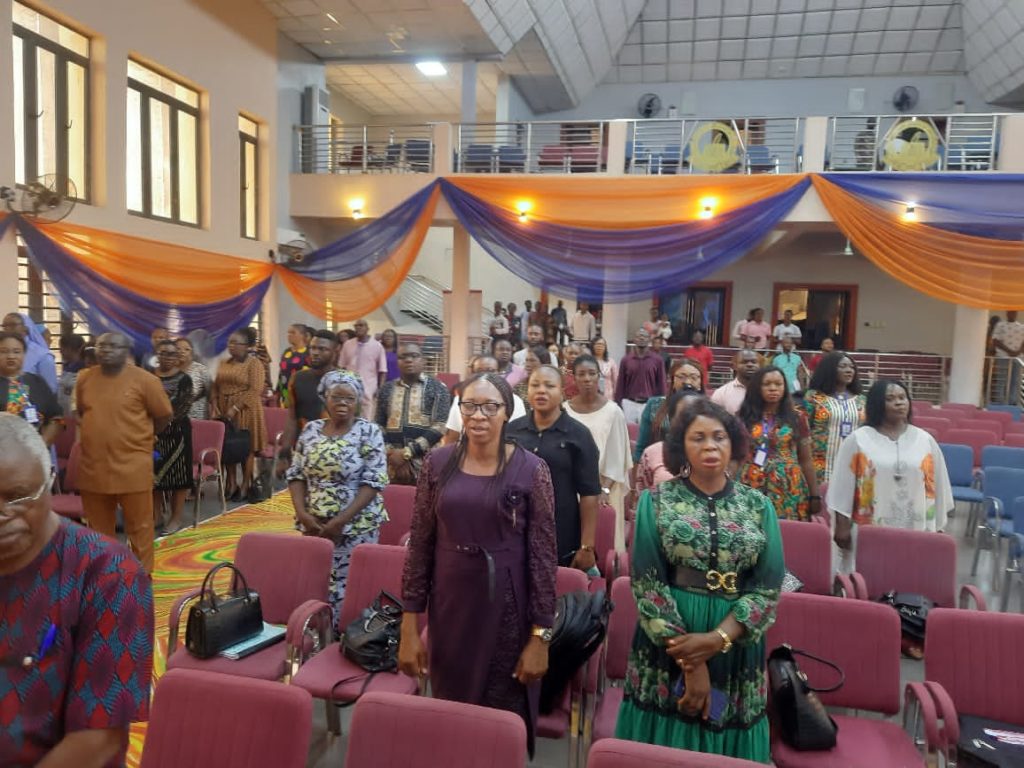
Adding that the government had completely abdicated its responsibility of funding education, Prof Umoru said elusive security, biting economic hardship, instability for academic calendar, and increasing rate of poverty are fast diverting the minds of the younger generation from education.
Corroborating, the Lead Paper Presenter, Prof Chinyere Augusta Nwajiuba, said the economic uncertainty in Nigeria has created a sense of fear and hopelessness among Nigerians.
She emphasized that poor funding of the education sector is a clog in the wheel of development of any nation, the reason the country must prioritize investing more resources to improve its standards.
She regretted that despite her riches, Nigeria still has about 16.2 million out-of-school children between 6 and 15 years —the second largest in the world. She also attributed the overseas migration of youths, teachers and workers to the economic realities in Nigeria and expressed fear that the situation if not controlled could lead to brain drain in the country.
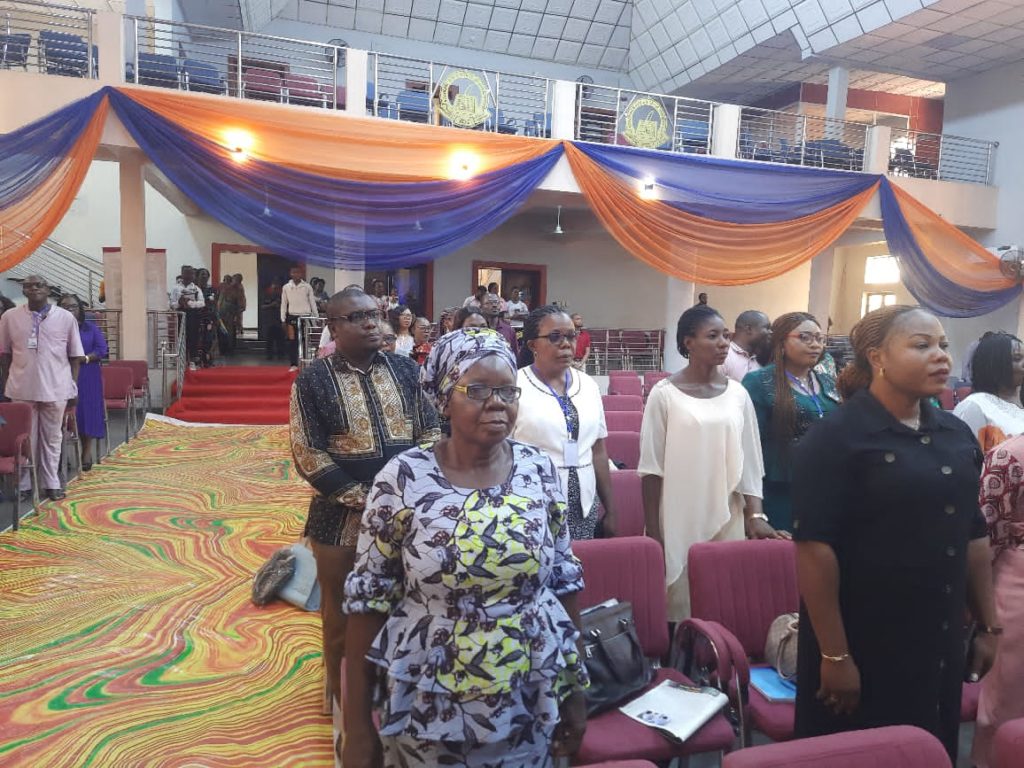
Nwajiuba, a professor of sociology education and Former Director of the Centre for Enhancement of Teaching and Learning (CETeL), said the country’s political, and leadership policies and governance style are filled with corruption. She added that the system has not only shaped the allocation of resources but contributed to the backward growth of education in Nigeria.
Nwajiuba advocated for improved funding of the education sector, adding that substantial investment in education would be essential for promoting economic development and reducing poverty in the country.
She also encouraged managers of institutions to explore partnership and collaboration with the private sector and communities for educational support and development. She further advised them to integrate a blended learning approach and invest in ICT infrastructure to ensure learning continuity and improved access to education in Nigeria.
Vice Chancellor Nnamdi Azikiwe University, Prof Charles Esimone represented by former Deputy Vice-Chancellor (Academic), Prof Frederick Odibo, said the theme of the conference is apt and described the current state of education in the country.
He said education is a vital key to the revival of any nation, but noted that if properly funded, could lead to socio-economic growth and development of the country.
The Chairperson of Anambra Post Primary School Service Commission (PPSSC), Prof Nkechi Ikediugwu said the rapid technological changes and transformations in the world underscores the need to embrace innovation to address challenges in the education system.
Ikediugwu, who was represented by the PPSSC Public Relations Officer, Chinyere Okafor, said emphasis must be placed on skill acquisition and the school curriculum tilted towards skills acquisition to achieve education for self-reliance.
Earlier in her opening remark, Dean Faculty of Education, Nnamdi Azikiwe University, Awka, Prof Vivian Nwogbo, said education has become a major transformation instrument and a potent tool for national development.
She regretted that the sociopolitical and economic uncertainty that has become a stark reality of present-day Nigeria has diminished and is impacting negatively on the potential of education. She also stated that the uncertainties have been complicated by technological advancements at an ever-increasing rate, transforming the nature of work, employment, and research.
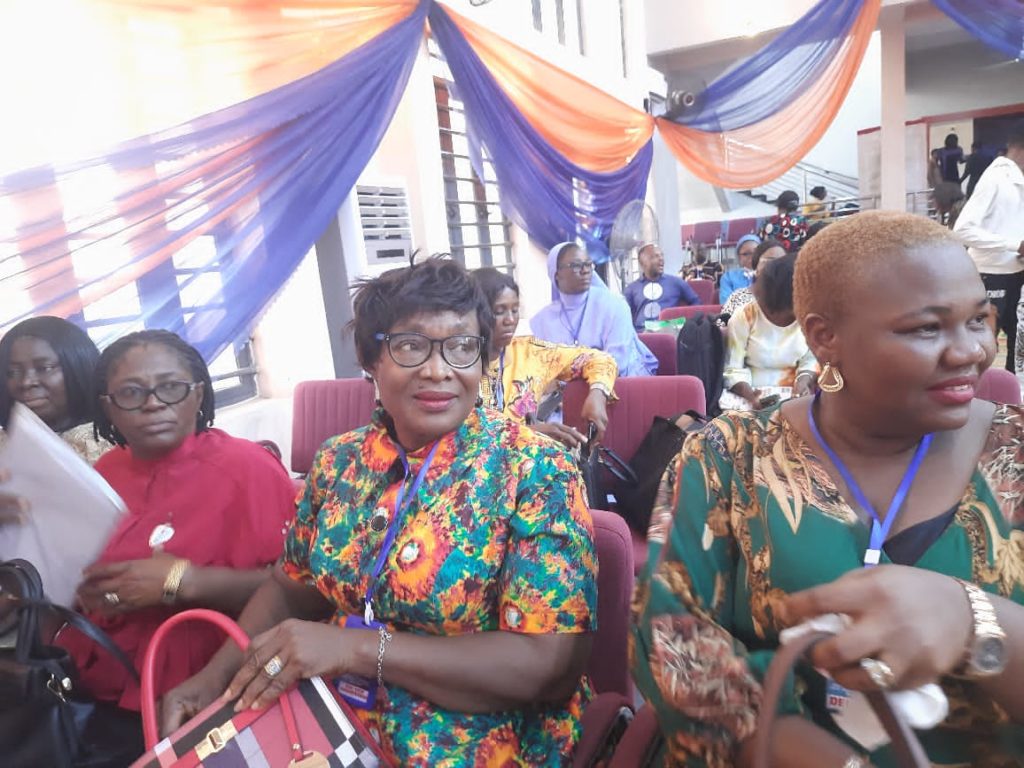
Chairperson Local Organising Committee, Prof Amaka Okeke, said the conference was convened to enable leaders in the field of learning to brainstorm on how to accelerate progress in deciding the role that education can play in shaping societies and institutions.
She also said it was to address how new digital and interactive tools can be integrated into teaching and learning, thereby making the education system flexible to adapt to the changing social, cultural and economic contexts.
The conference climaxed with awards to Unizik VC, Prof. Charles Esimone, Prof. Joy Eyisi, Prof Fredrick Odibo, Prof Nkechi Ikediugwu, and Prof Vivian Nwogbo, for academic innovations, development of humanity and contributions to the growth of education.
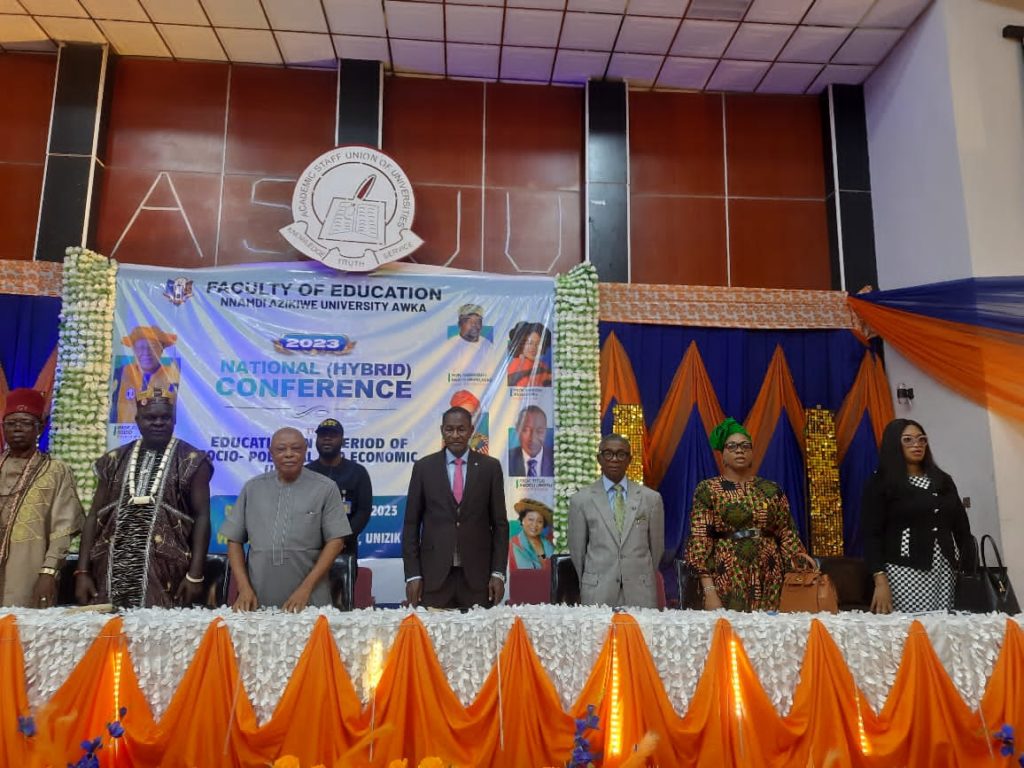


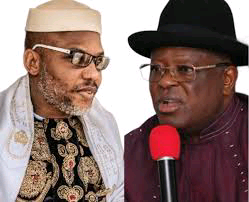




Government should do something about this. Nigeria education is really dwindling. Our youths are helpless.
Chinaza Ezeokoli
Education is very important. And a lot of focus should be put into it
I agree
Nnamdi Azikiwe University Awka is a great school with energetic Vice Chancellor and Lecturers. The Nigerian government should help grow the education sector.